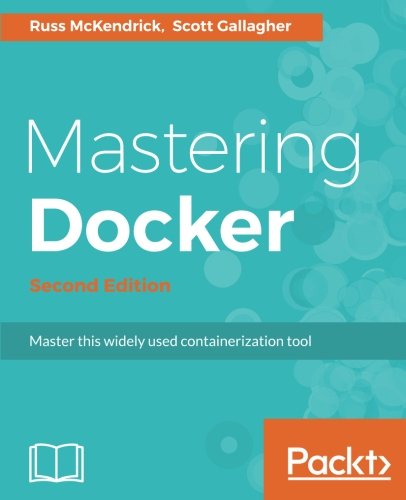; Date: Tue Jun 02 2009
Tags: OpenJDK »»»»
The JavaOne opening keynote is still a fancy rock & roll show with fancy stage and the like. It's always exciting to see what they have to say, and they do a good job of spinning a story that Java is Everywhere. The overall message is to convince developers that the Java platform is compelling, that Sun is providing this compelling ecosystem for developing applications, and that the developers can become uber-rich by developing applications for the Java platform.
It's a cool message.. Anyway it struck me how non-community-oriented this message is. It's delivered in a push model, that "we Sun are developing this platform for you <the developer>" rather than a community oriented message of "we came up with this cool thing, let's work together to make it totally great". At one point Jonathan said something about delivering compelling technologies that engage developers who are going to build the next eBay. This phrase "the next eBay" is emblematic of a problem Sun has in general, in that they develop lots of great technologies not all of which are lines of business that can do $1B per year. Sun's management however can only contemplate billion dollar business decisions and is incapable of working with smaller scale business decisions. Example in point: SunSpot which is going to remain an unexploited business opportunity because it's too small. Sun is leaving a lot of $$$'s on the table by being unable to exploit small business units along with the large ones.
In any case I want to get back to this distinction between the push model of developing technology to give to developers, versus setting up collaboration projects to develop technology ideas.
This is important in regard to the trending at Sun towards Open Source software projects. While the official definitions of open source projects focus on the licensing terms and freedoms granted by the license, it's widely recognized that community oriented development is a requirement for success in open source software projects. There are a lot of resources out there with guidelines for successful communities and how it exists within open source software projects. Yesterday @ CommunityOne the Ubuntu community manager, Jono Bacon, gave an excellent presentation on community (artofcommunityonline.org), for example. Basically a community is a cluster of people interacting with one another. It help's bring community into existence when the people gain value of some kind from participating in community processes.
It seems obvious to me the push model of delivering technology does not lead to community creation. The push model isn't very collaborative, not engaging people into interaction. How can the community form if there is not a compelling reason for people to interact with one another?
Perhaps this is a core reason behind a number of WTF issues related to Sun and Java .. Sun makes excellent technologies like Java, so why hasn't Sun been able to be successful as a business.
During the Keynote the tail end was led by the new overlord, Larry Ellison. There was a little dance on the stage which wasn't explained but reminded me of the 2006 JavaOne keynote which was Jonathan's first time as CEO giving the keynote. He and Scott were on stage and they explained that the widget used by the presentation leader to control the slides, that the official name for that widget was "The Pickle". They made a big hooraw about Scott handing The Pickle to Jonathan in a symbolic passing of the torch of authority from Scott to Jonathan.
During this keynote there was a similar passing of the Pickle. It went first from Jonathan to Scott who did a bit of joking around about reasons why Sun+Oracle makes sense, and then Scott passed it to Larry.
During this section Larry & Scott addressed the obvious concerns we might be having about the Sun+Oracle deal and specifically what it means for Java. It sounds good in that for example Oracle's middleware is 100% Java. Oracle's product line-up is a database engine plus a whole big slew of apps running on top of the database, all of which are written in Java. It's clear that Java is important to Oracle.
What isn't clear is whether the OpenJDK community is important to Oracle.
Nowhere in Larry's talk did he mention open source, community, OpenJDK, etc. Instead he talked in this same push model.
Larry also said a few oddball things ...
He's been meeting with various teams within Sun to discuss product plans. This makes perfect sense in that Oracle buying Sun is clearly going to mean a direction change for what has been Sun's product line. A specific weirdo thing he said is he hopes for "JavaFX Libraries from the OpenOffice team".
Uh... say what?
I've long been wanting that very thing. It makes perfect sense to me that an Applet to display OpenOffice documents would be extremely useful. And with JavaFX it's very plausible this could be a great user experience.
This would be known as Rich Enterprise App's. Rich applications need not be limited to consumer app's. There are plenty of examples of needing Rich applications for other purposes than immersive gaming. An obvious example is
finance.yahoo.com and the like where stock information is presented as a fancy charting application.
It's nice that Oracle sees the need for Rich Enterprise app's.
However a couple years ago I had a chance to talk with a Marketing leader within the OpenOffice team, and brought up this very idea. That led to an interesting conversation.
Because of the OpenOffice architecture any display app to show an OpenOffice document would end up dragging in pretty much every OpenOffice component. OpenOffice's file format is a compressed ZIP file with XML files in a known/standard ODF format. This is why it seems compellingly possible that an applet could simply read the XML files and render them.
But OpenOffice has an embeddable object module so that e.g. you can embed a spreadsheet in a presentation to display charts or tables. Because of that any OpenOffice document can reference OpenOffice objects from any of the applications. Because of that even a simple viewer applet would be essentially the whole of OpenOffice.
Another fly in the ointment here is the various licenses involved. One of the big huge values of OpenOffice is it's open source license that e.g. allows OpenOffice to be in Ubuntu/Debian Main and have equivalent status on other operating system distributions. But JavaFX is not using an open source license making it infeasible to put JavaFX into those operating systems. If OpenOffice were to be rewritten in JavaFX that would put a dependency on JavaFX making it impossible for OpenOffice to continue being delivered in open source operating system distributions. That is, if JavaFX continues being closed source. Maybe JavaFX will be fast tracked into being open sourced?
An open question is whether Larry's statement means a demand to rewrite OpenOffice into Java/JavaFX .. or whether he only meant some kind of library. For example it might be possible to embed (JNI) OpenOffice native libraries as Java(FX) objects without biting the bullet of rewriting OpenOffice in Java. It would also be incredibly expensive to undertake an OpenOffice rewrite and also be very risky.
In other words I was left scratching my head and going WTF is he thinking.
Before you think I was turned off by the keynote, no, I wasn't. It was exciting the various ideas and things presented. For example they showed fabulous things with JavaFX TV, JavaFX BluRay, the new Authoring tool, and store.java.com. Very cool.
Source:
weblogs.java.net











